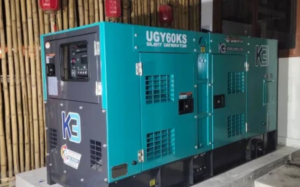
Owning or managing a commercial property is a significant investment. Whether it’s an office building, retail store, or industrial facility, maintaining the integrity of the structure is crucial for ensuring the longevity, functionality, and value of the property. Commercial building maintenance goes beyond just keeping things clean and tidy; it plays a key role in safeguarding the safety of occupants, optimizing energy efficiency, and preserving the building’s value.
Regular and proactive maintenance is an essential practice that can prevent costly repairs, improve business operations, and protect the bottom line. Here’s why commercial building maintenance matters and why it should be a top priority for property owners and managers.
1. Preserving Property Value
Just like any other asset, the value of a commercial property is tied to its condition. Regular maintenance helps protect and even enhance this value over time. A well-maintained building presents a professional image, attracting tenants, customers, and investors. On the flip side, a poorly maintained property can become a financial burden. Minor issues, if left unchecked, can turn into major problems that require expensive repairs or replacements. For example, neglecting a leaky roof or plumbing system can lead to water damage, which can compromise the building’s structure and lead to expensive remediation costs.
In addition to avoiding costly repairs, commercial building maintenance can increase the property’s market value. Properties with updated systems, like HVAC, plumbing, and electrical, will stand out in a competitive market, helping to retain tenants and even increase rental income. Consistent upkeep can also help keep the building compliant with regulations, reducing the risk of fines and legal complications that could negatively impact its value.
2. Ensuring the Safety of Occupants
Safety must always be a top priority in any commercial building. Neglecting maintenance can create significant hazards for everyone inside, including employees, tenants, and customers. Issues like faulty electrical systems, fire risks, outdated elevators, and slippery floors are just a few examples of how poor maintenance can compromise safety.
For example, an ignored HVAC system can lead to poor indoor air quality, causing health problems for workers or visitors. Likewise, a malfunctioning fire alarm or blocked emergency exits can turn a simple emergency into a disaster. To avoid such risks, building owners and managers should prioritize regular inspections and ongoing maintenance.
Doing so ensures the building remains safe for all occupants and reduces the chances of preventable accidents. If an injury does occur due to unsafe conditions, injury lawyers in Houston, Texas, can assist in securing compensation for those affected. Proactively addressing hazards is crucial to preventing injuries and ensuring a secure environment.
3. Enhancing Energy Efficiency
Energy costs are a significant part of operating a commercial building. Inefficient systems, such as outdated HVAC units, poorly insulated windows, and leaky pipes, can lead to excessive energy consumption and high utility bills. Through regular maintenance, these systems can be kept running efficiently, which not only lowers costs but also contributes to environmental sustainability.
For example, replacing air filters in HVAC units, sealing gaps in windows, and upgrading insulation can dramatically improve energy efficiency. Routine maintenance ensures that these systems function as intended, preventing energy waste and helping to reduce a building’s carbon footprint. In an era where sustainability is a priority for businesses and customers alike, maintaining an energy-efficient building can give your company a competitive edge.
4. Avoiding Costly Repairs and Downtime
One of the main benefits of regular maintenance is the ability to catch minor issues before they become major problems. Early detection of issues such as leaks, cracks, or malfunctioning equipment can save significant amounts of money on repairs. For example, fixing a small crack in a foundation early on can prevent the need for costly foundation repairs down the line. Similarly, scheduling routine inspections of HVAC and plumbing systems can help identify small issues that, if ignored, could lead to system failures or downtime.
In addition to reducing repair costs, maintenance minimizes the risk of equipment breakdowns and operational disruptions. A sudden failure of a key system—like a malfunctioning elevator in a multi-story office building or a broken air conditioning unit in a retail store—can disrupt business operations and lead to significant downtime. Regular inspections and upkeep can help ensure that systems and equipment are functioning properly, preventing unexpected breakdowns and keeping operations running smoothly.
5. Legal and Regulatory Compliance
Commercial buildings must adhere to various local, state, and federal regulations concerning safety, accessibility, and environmental impact. Regular maintenance is essential to ensuring that a property remains in compliance with these standards. For example, fire safety systems need to be regularly inspected and updated to meet fire codes, while elevators and accessibility features must be kept up to date to comply with the Americans with Disabilities Act (ADA).
Failure to maintain compliance with these regulations can result in costly fines, legal issues, and damage to your reputation. Regular maintenance ensures that your building stays in line with these requirements, minimizing the risk of non-compliance and the associated consequences.
In Conclusion
Commercial building maintenance is far more than just a checklist of routine tasks. It is a proactive approach to protecting the value, safety, and functionality of your property. By investing in regular maintenance, property owners and managers can avoid costly repairs, ensure the safety of tenants and employees, improve energy efficiency, and maintain compliance with regulations.
Ultimately, a well-maintained building not only benefits its occupants but also enhances the long-term success of the business itself. The importance of commercial building maintenance cannot be overstated—it’s the foundation of a property that stands the test of time.










